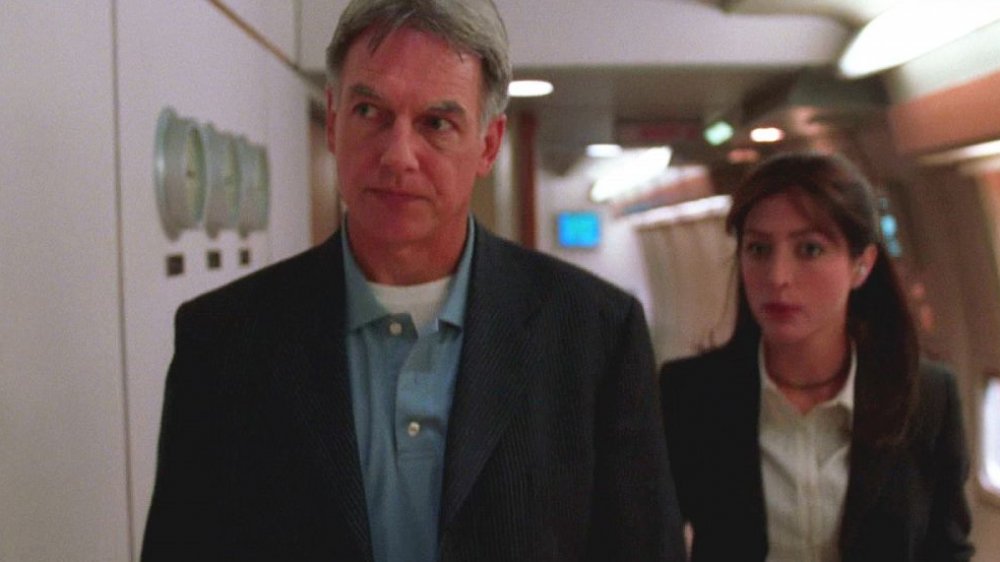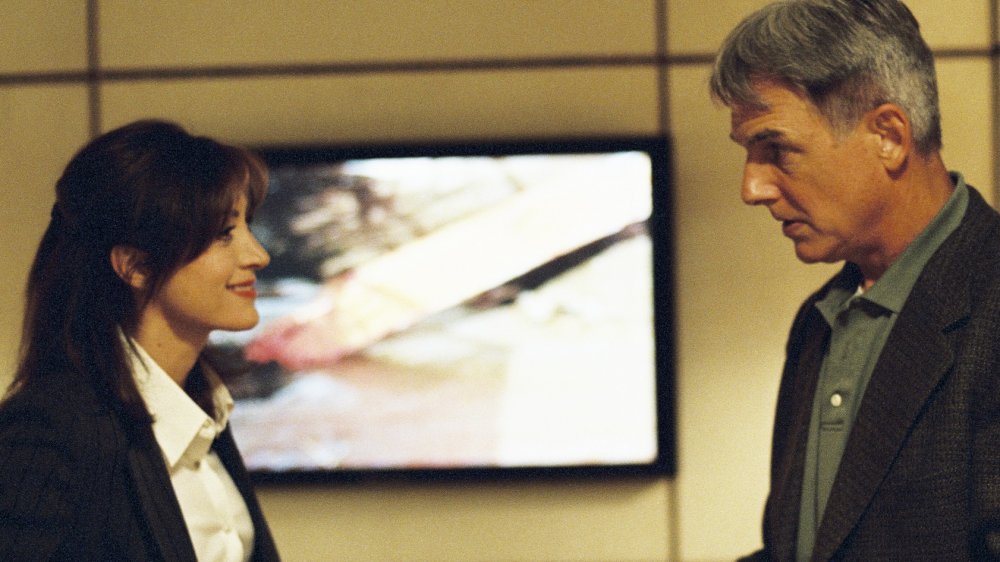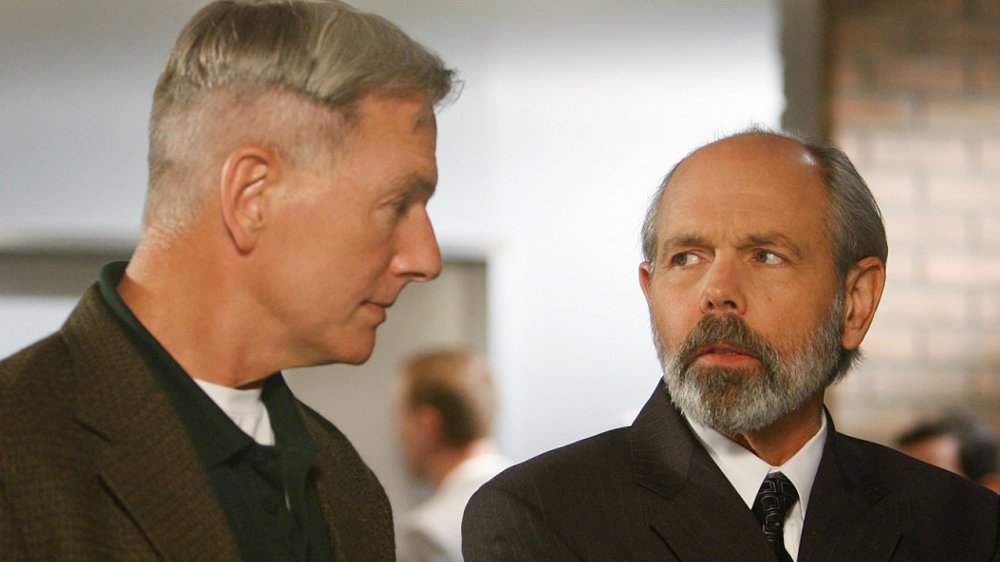How One Gibbs Moment Could Have Changed NCIS Forever
With so many episodes under its belt — nearly 400 as of August 2020 — it's hard to remember a time when one could turn on a TV and not find NCIS playing. But even TV's most popular drama had to start somewhere, and nearly 20 years later, NCIS' pilot episode is raising a few questions.
After a backdoor pilot on sister series JAG, the first-ever standalone episode of NCIS aired on September 23, 2003. Its title, "Yankee White," is a reference to a security background check that gives people access to the president — a relevant plot detail. The episode did well enough to kick start the series' long run, and introduced now-classic NCIS tropes like one-liners, maverick approaches to security, team banter, and the understanding that Gibbs has rules on NCIS that his agents have to learn.
But recently, some viewers have suggested that perhaps the story should have turned out very differently for one of the show's main characters. Here's how one Gibbs moment could have changed NCIS forever.
How did Gibbs dodge those bullets?
Given it's been more than a while since "Yankee White" first aired (and just in case you haven't caught a repeat recently), here's a recap of what happens on the episode.
NCIS Special Agents Leroy Jethro Gibbs (Mark Harmon) and Tony DiNozzo (Michael Weatherly) investigate the death of a Naval Commander who died while traveling on Air Force One — but they find themselves in the middle of a jurisdictional stand-off between the FBI and the Secret Service, the latter led by agent Caitlin Todd (Sasha Alexander). Todd reluctantly helps Gibbs and DiNozzo take the replacement plane back to D.C. without the FBI.
On board, another passenger has a medical emergency, presenting the same symptoms as the Naval Commander. With everyone else distracted, Gibbs realizes that terrorists must have sent in an undercover operative and cloned the keys to the plane's armory. He sends Todd to guard the President while he checks the weapons. Seeing that a sub-machine gun is missing, Gibbs arms himself with a handgun and goes looking for the perpetrator.
This is where the improbable scene comes in. The terrorist is Leonard Rush (Robert Bagnell), who was posing as a journalist. Gibbs finds him in a corridor, trying to get to the President. Rush opens fire on Gibbs — and somehow every bullet misses. Gibbs fires a single shot and hits Rush, sending him to the floor. He adds two more shots for good measure. Not only is Gibbs somehow uninjured, but the fuselage is also undamaged.
The scene showcases Gibbs' courage, quick-thinking, marksmanship, and coolness under fire. But there's no denying that without some Matrix moves, in reality, his odds of dodging machine gun fire in the confines of a narrow plane corridor are pretty much zero. If NCIS had been more committed to realism, Gibbs may have died on the first standalone episode, changing the series forever.
Why didn't Fornell and Gibbs recognize each other?
Gibbs' apparently miraculous survival isn't the only plot hole fans have spotted on the pilot episode since it aired. The episode also introduced one of fans' favorite NCIS relationships — and we don't mean Todd and Gibbs. (At the end of the episode, Gibbs recruited Todd after she was dismissed from the Secret Service for helping his team, but Sasha Alexander left NCIS after season 2.)
On later episodes of NCIS, viewers learn that FBI Agent-turned-private-investigator Tobias Fornell (Joe Spano) is one of Gibbs' closest friends. They hang out off duty and even spend Christmas together. However, the two have a slightly awkward history: After Gibbs divorced his second wife Diane (Melinda McGraw), she married Fornell, with whom she has a daughter.
Reddit user u/stevanui points out that Fornell and Gibbs must have known each other prior to the series starting. Gibbs was already divorced by the pilot episode, and he apparently warned Fornell against marrying Diane — prophetically, as it turns out. Yet, when they see each other on Air Force One during the episode, neither acknowledges their friendship and they greet each other as though meeting for the first time.
NCIS may not have come up with a good explanation for this, but it's easy to understand when you consider how far the characters' relationships and backstories have evolved since then. The untold truth of NCIS — and any long-running series — is that the writers and actors don't know how it will develop over time. We can forgive one slightly out of place moment if it means we get to enjoy fans' favorite NCIS bromance. Gibbs dodging bullets that should have ended his life? Less plausible, but we'll look past it since the moment gave us the NCIS we know and love today.


